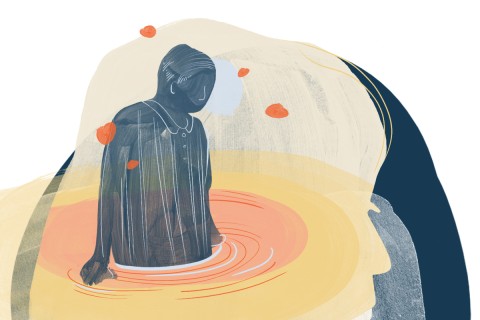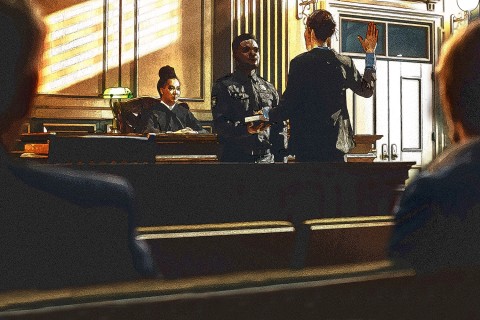Jet lag
The bedazzling first neon shots of Tokyo in Lost in Translation suggest a topsy-turvy version of Manhattan-weirdly familiar and yet alien, denser, even more vertiginous. Bob Harris (Bill Murray), a middle-aged movie star who's been flown to Japan to shoot a series of whiskey commercials, stares out the window of his cab and blinks through his jet-lag haze. This one-of-a-kind movie, written and directed by Sofia Coppola, is about trying to navigate through a foreign environment and finding the process mirrors your fear that you've been stranded in your own life, marooned on an unrecognizable shore, with no idea how to find your way back.
Bob's career has hit a rocky patch, and his 20-year marriage has become thorny with half-buried resentments. (When he arrives at his hotel, a note from his wife reminds him that he forgot their son's birthday, but she's sure the kid will understand.) In the hotel bar he meets 23-year-old Charlotte (Scarlett Johannson), who's accompanied her photographer husband (Giovanni Ribisi) to Tokyo and is left alone for days at a time while he travels with the band he's shooting. Struggling to connect with this exotic culture she expected to find exciting and enlightening just makes her lonelier. After two years of marriage she's begun to realize that she and her husband are strangers to each other, and she hasn't settled on a career. Fellow refugees, fellow insomniacs, she and Bob become companions.
This is Coppola's second film. Her first was an adaptation of Jeffrey Eugenides's novel The Virgin Suicides--perhaps the oddest adolescent narrative of recent years, in which five teenage siblings are imprisoned in their suburban house by their nutty mother, with tragic results. The film's plot didn't make sense, the characters were insufficiently drawn, the point of view was confusing, yet something about it clung to you afterwards--the images of the fragile, doomed girls, glimpsed through the rapt adoration of the local boys who wanted to rescue them. You could see that Coppola had an unusual talent for conjuring up plaintive, haunting moods, even if she hadn't figured out how to tell a story. (The talent isn't unexpected: she's the daughter of Francis Ford Coppola.)




